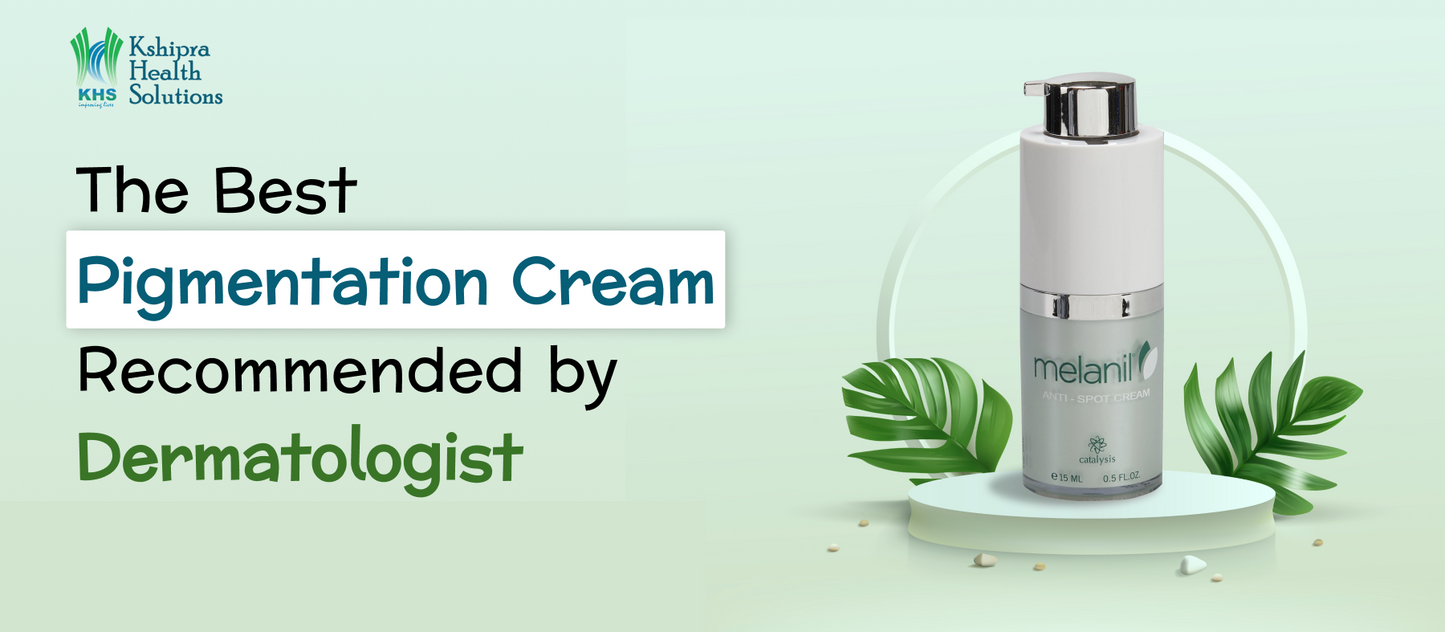
30 second summary
- Understanding Melanin and Its Impact on Skin Tone and Dark Spot Formation
- Irregularities Due to Uneven Melanin Production and the causes behind it
- Kshipra Health’s Melanil being the capable problem solver
- Incorporating Routine Practices with Melanil Usage
- Visible Benefits of Using Melanil
Skin Health and its Aesthetic can now be Safeguard with Kshipra Health’s best pigmentation cream recommended by dermatologist
When your skin has a consistent colour all over, it looks its best with a smooth and even appearance. Any variation can bother us every time we look at it, making us uneasy until we address it.
Dark spots or patches on the skin can have various causes, like sunburns from lack of protection against the sun's rays or marks left by acne. In both cases, excess melanin settles in certain areas of the skin.
Many people try different remedies to lighten these dark spots, but often they fail to target the underlying cause: the level of melanin secretion. This blog explores the science behind melanin production and its impact on your skin tone and other imperfections. And you will also discover how Melanil – our best pigmentation cream recommended by dermatologist in India, can assist in overcoming these challenges.
What is Melanin?
Melanin is known to be a natural substance present in our skin that gives distinctive tone to our skin depending on its volume present, making either lighter or darker being directly proportional to its presence.
Melanin’s presence in varying concentrations gives rise to the spectrum of skin colours observed in individuals, ranging from lighter to darker shades. Other than its direct influence on the skin, it also governs hair and eye colour. Eumelanin, abundant in those with black or brown hair, contrasts with pheomelanin, responsible for red hair hues. In the iris, melanin levels dictate eye colour, with higher concentration resulting in darker eyes.
Its chemical composition is denoted by its formula C18H10N2O4, revealing its structure as a polymer that is very resilient and durable. While melanin is essential for skin coloration, it is several times observed to get settled in certain areas of our skin, causing the formation of dark spots or patches on the skin as it is tough to break down by simple means.
Why is melanin important for our skin?
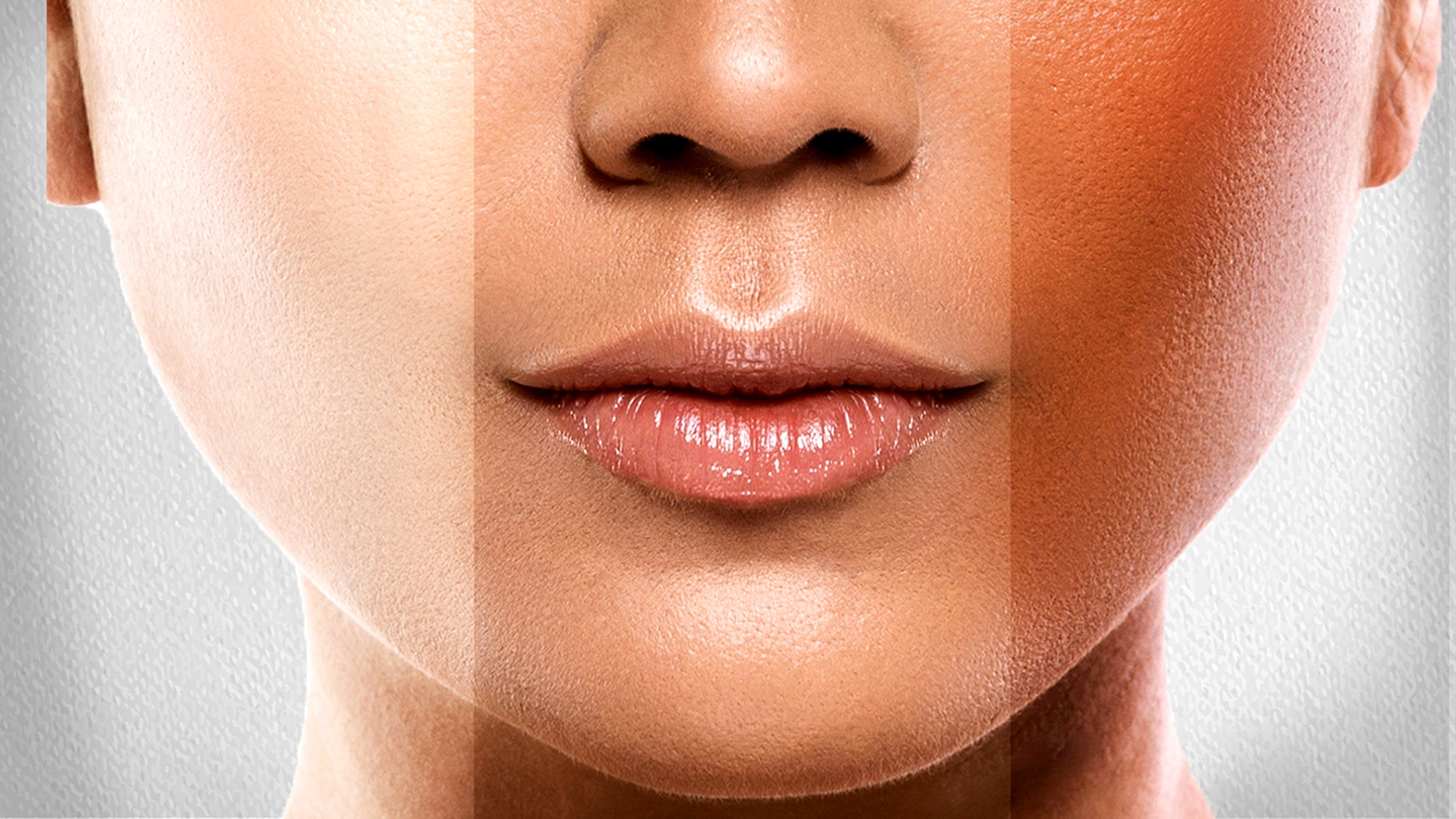
The importance of melanin for healthy skin is huge, even though its often linked to issues like uneven skin tone. Melanin acts as a shield, fighting against harmful molecules called reactive oxygen species that are produced during normal cell processes. Too many ROS can leads to early ageing, stress and serious illness like diabetes and cancer.
Along with its anti-aging property, melanin also protects our skin from the sun’s harmful rays by absorbing or reflecting them. This helps keep our skin safe from damage caused by UV light and blue light. Which in turn also regulates the body temperature, maintaining it within a standard range that ensures continuous bodily functions, including proper blood flow.
So, despite the misconception, the situation doesn't demand managing melanin as an entire entity. What's important is finding a solution to regulate its production and correct the skin tone effectively.
Common Skin Tone Irregularities Caused by Irregular Melanin Secretion
When noticeable irregularities in skin tone become too prominent, individuals often feel compelled to address them. These irregularities arise from varying causes of uneven melanin secretion, which differ from case to case.
1. Hyperpigmentation
The dark patches and spots found on skin are caused by excess melanin production. This condition can be triggered by various factors, including:
- Sun exposure stimulating melanin production
- Hormonal imbalance during pregnancy or even at times observed during puberty.
- Acne and other inflammatory skin conditions are observed to lead post-inflammatory hyperpigmentation.
- When you get a wound, cut, or burn, your skin may darken as it heals. Sometimes, though, the dark patch stays the same colour and stands out a lot.
2. Uneven Skin Tone
Uneven skin tone refers to the inconsistent coloration observed across the skin surface, appearing blotchy or mottled. Possible causes of this condition may include:
Exposure to UV radiation from the sun can result in intense sunburns in areas where melanin levels are insufficient, leaving the skin vulnerable to sunburn.
As we age, the skin's capacity to produce melanin becomes less consistent. This process involves the interaction between melanocytes in the body and the absorption of the amino acid tyrosine from food. This decline can result in melasma or other irregular pigmentation.
3. Direct Discoloration:
Certain discoloration can be observed on the skin in the form of redness, sallowness or ashen skin tone, causes of such development includes:
- Conditions like rosacea, dermatitis or allergic reactions can be responsible for flushed skin.
- Slightly compromised blood flow to the skin can result in a pale or ashen complexion.
- Certain medications such as nonsteroidal drugs, antimalarials, heavy metals, and psychotropic drugs may also lead to skin discoloration as a side effect.
4. Scarring
Acne scarring is formed by the dark marks left behind after acne breakouts start to heal. Cause of such scarring may also include:
- Prolonged inflammation from acne lesions which triggers melanin production, leading to the developed of dark marks in the concerned area.
- Detrimental habits like skin picking or squeezing out the acne lesions are seen to worsen the inflammatory response in the concerned areas and increase the risk of scarring.
Melanil: A Dermatologist-Recommended Cream for Pigmentation

The central concern across all the mentioned skin issues is the appearance of unwanted dark spots. Emergence of unsightly dark spots that individuals wish to get rid of once and for all without compromising the health of their skin. Kshipra Health Solutions’ addresses this need with Melanil, an Anti-Spot Cream. This product effectively lightens the skin and removes the uneven pigmentation and dark spots safely.
The ingredients present with the formulated product serve to the different prerequisites of the skin and leading to the gradual disappearance of dark spots over time. They directly target dark spots caused by settled melanin in specific areas of the skin surface. The list of the ingredients include:
- Glabridin: Glabridin comes from liquorice root. It's known for its ability to reduce inflammation, making the skin tone more even. It can also help to calm redness and irritation.
- Kojic Acid: Kojic acid is obtained from a type of fungus called Aspergillus ferment. It's known for its skin-lightening properties, helping to reduce hyperpigmentation by slowing down the production of melanin.
- Arbutin: Arbutin comes from bearberry. It helps to lighten dark spots and even out skin tone by inhibiting the production of melanin.
- Phenyl Flavonoids: Phenyl flavonoids are derived from white mulberry. They act as antioxidants, protecting the skin from damage caused by oxidative stress and promoting a healthier complexion.
- Aloesin: Aloesin is extracted from Aloe vera. It has soothing properties that help to calm irritation and promote smoother, more balanced skin.
Other Routine Practices Alongside Using Best Dermatologist-Recommended Cream for Pigmentation
|
Steps |
Things to consider during this routine |
|
Cleanse and moisturize your skin daily |
Cleanse and moisturize skin daily after showering. Massage cleanser onto skin, rinse with warm water, and pat dry. Use petroleum jelly as a highly effective moisturizer but be cautious on the face to prevent acne. Choose noncomedogenic products and avoid fragrances to prevent skin irritation. Opt for creams or ointments over lotions for better hydration. |
|
Prioritise applying sunscreen |
Even though people with more melanin in their skin are less likely to get sunburned, everyone should still use sunscreen. Apply sunscreen year-round, even on cloudy days and in the shade. Look for moisturizers with SPF for daily sun protection. Focus on protecting the face, as it's often exposed to the sun year-round. |
|
Treat acne early |
Establish a gentle daily skincare routine with noncomedogenic, oil-free products. Avoid irritants like scented laundry detergent and heavily perfumed skincare products. Consult a dermatologist for personalized acne treatment recommendations |
|
Eat a balanced diet |
Eat a healthful diet rich in: Fruits and vegetables, Whole grains, Lean protein sources (fish, eggs, legumes, tofu), Healthful fats (nuts, avocado, olive oil), Avoid processed and sugary foods. Limit alcohol intake to improve skin health. Consult a dermatologist if you have a skin condition like acne or eczema to identify any foods that may worsen symptoms. |
Benefits of Using Melanil
Melanil earns its title as the best cream for pigmentation recommended by dermatologist, by effectively targeting visible skin irregularities arising from uneven melanin distribution. These variations, caused by various factors, result in differing pigmentation levels across the skin.
The noticeable benefits of Melanil include addressing the following skin concerns:
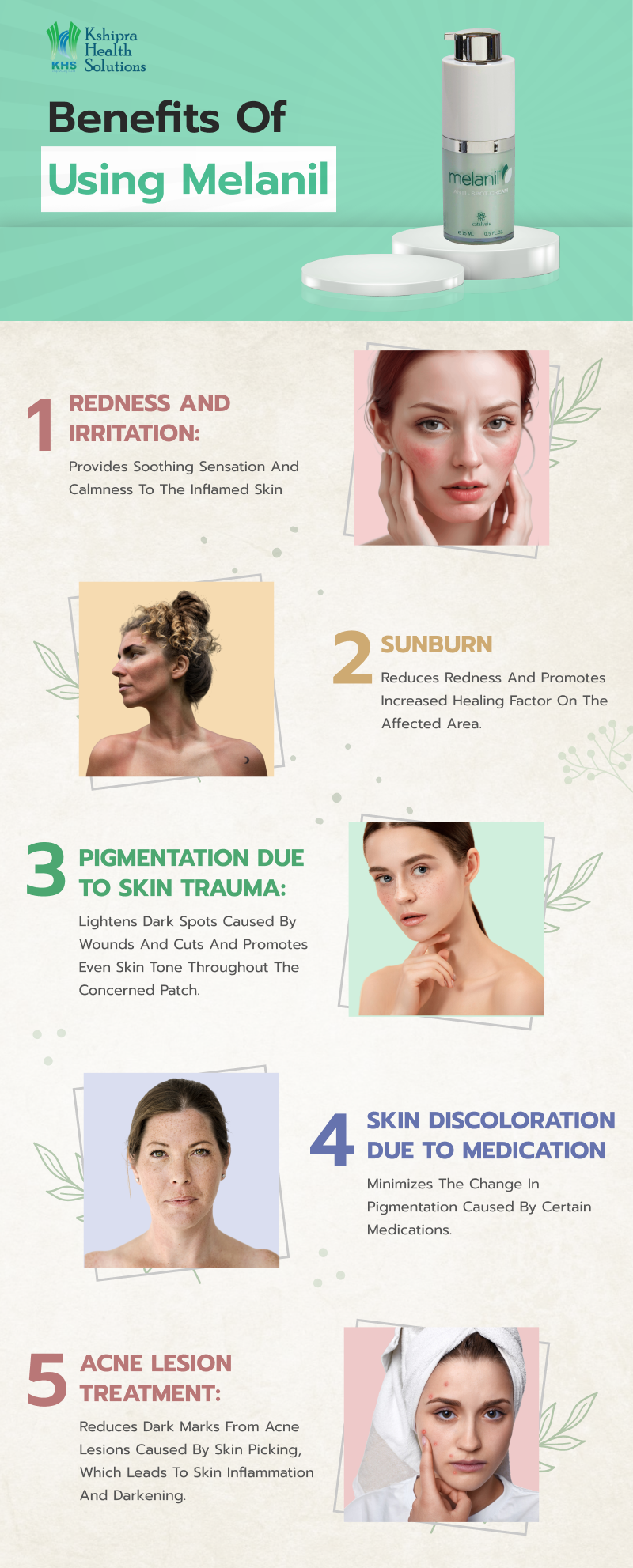
Conclusion
Dark spots that have developed due to the melanin related reasons can only be overcome by regulating its amount in the affected area. This effective and direct approach is now possible with our product – Melanil. It deserves the title of being the best pigmentation cream recommended by dermatologist thanks to its ability of removing dark spots and patches while fortifying the skin ability to resist wear and repair tear.
Just by including our suggested routine practices alongside the usage of this cream you can achieve healthy, smooth, and evenly toned skin. Explore our website to discover other dermatologist-recommended product which can address your specific skin health concerns efficiently and without harmful side effects.
FAQs on Best Pigmentation Cream Recommended by Dermatologists
Does melanin have harmful effects on our skin, given its role in darkening?
Despite common misconceptions about melanin's role in skin colour, it's not harmful. Melanin protects against UV rays by increasing production when exposed to sunlight, darkening as a defense mechanism. However, excessive melanin can lead to skin disorders if unregulated.
What causes melanin to decrease in skin?
Skin lightening treatments can temporarily reduce melanin production by suppressing the enzyme responsible for its formation. However, besides sunscreen and sun protection, you can't lower overall melanin levels. It's better to focus on removing spots or patches by targeting the areas where melanin is out of proportion, for a smooth, even, and aesthetically pleasing complexion.
What is Melanil used for?
Melanil address dark circles and pigmentation. It also diminishes skin tan. For achieving best results, cleanse and dry the area, then apply a thin layer of Melanil twice daily until the spot vanishes.

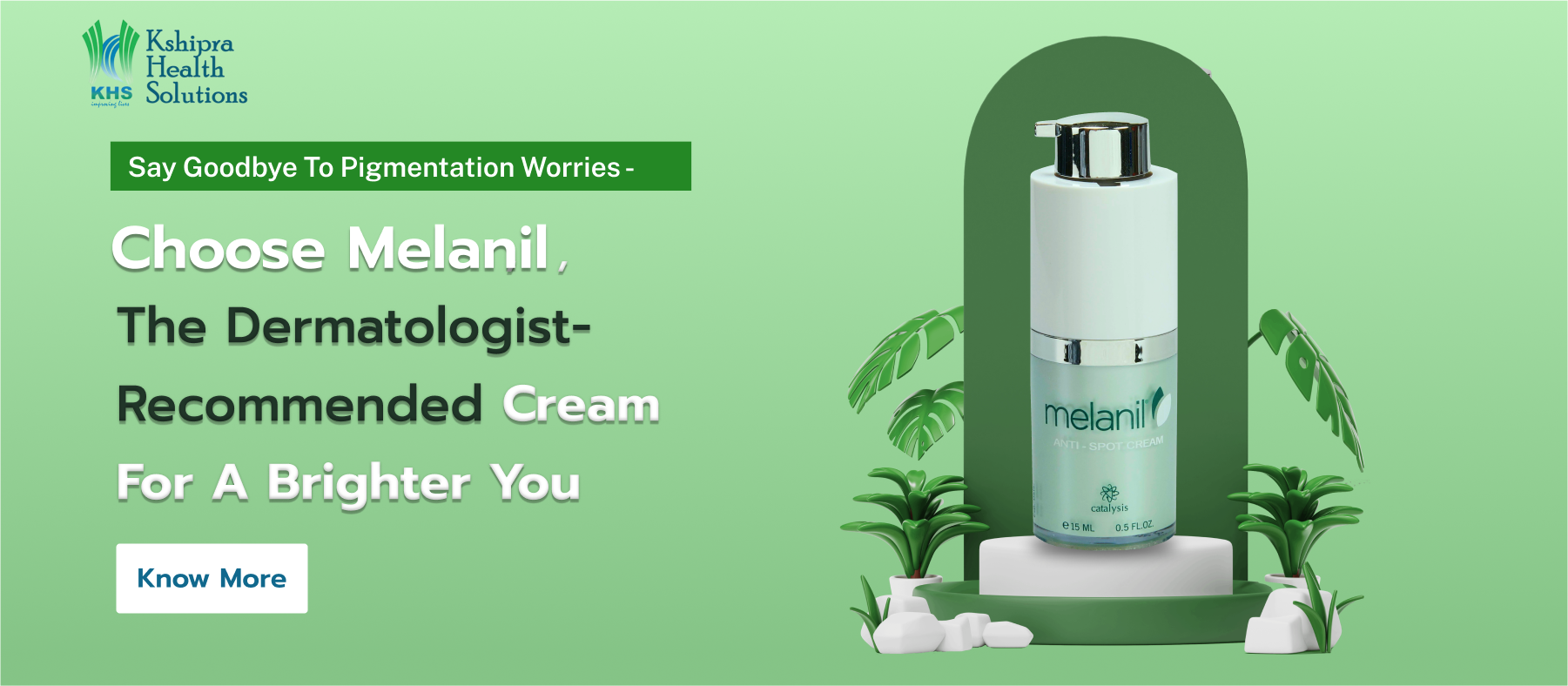
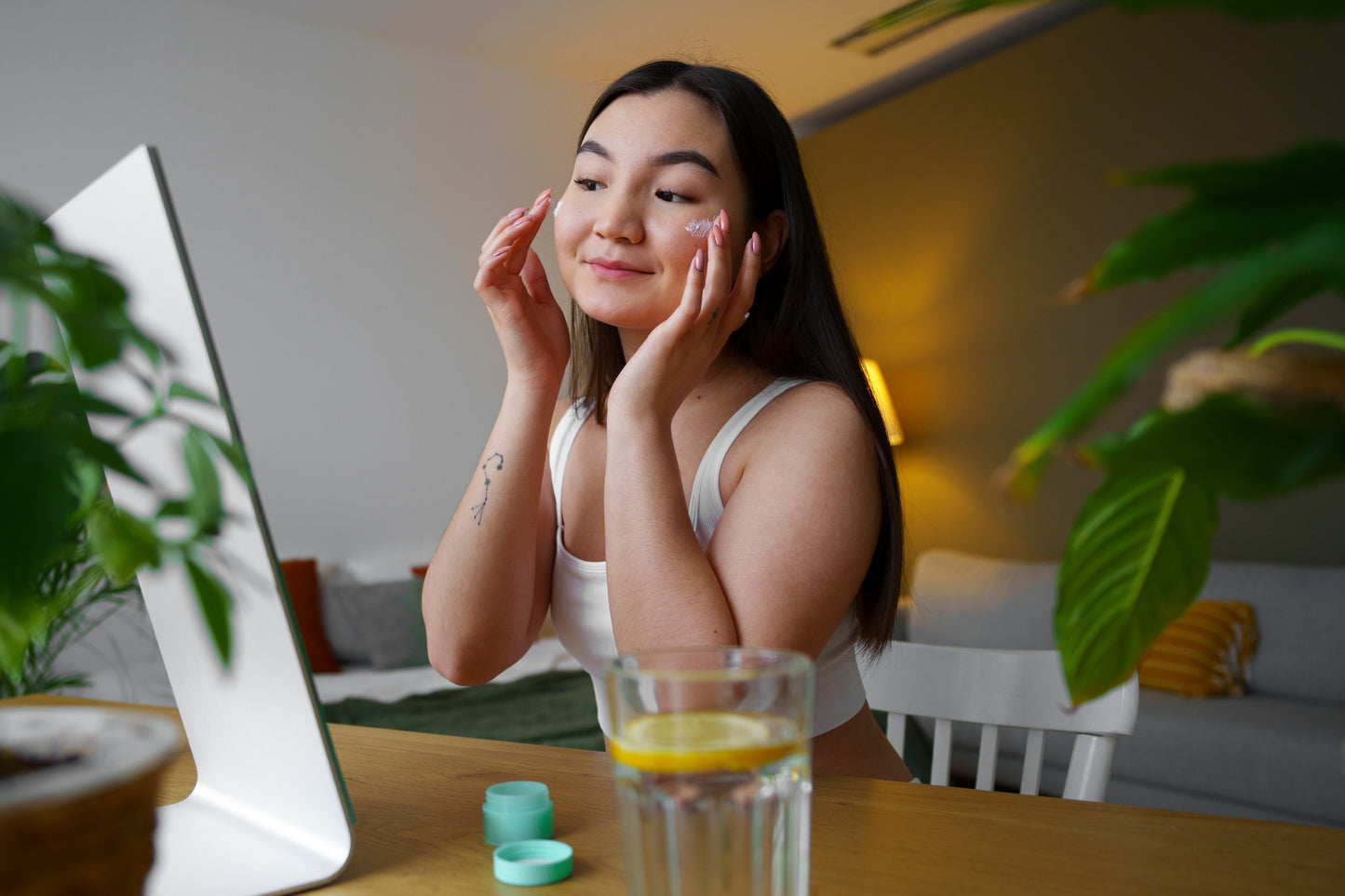
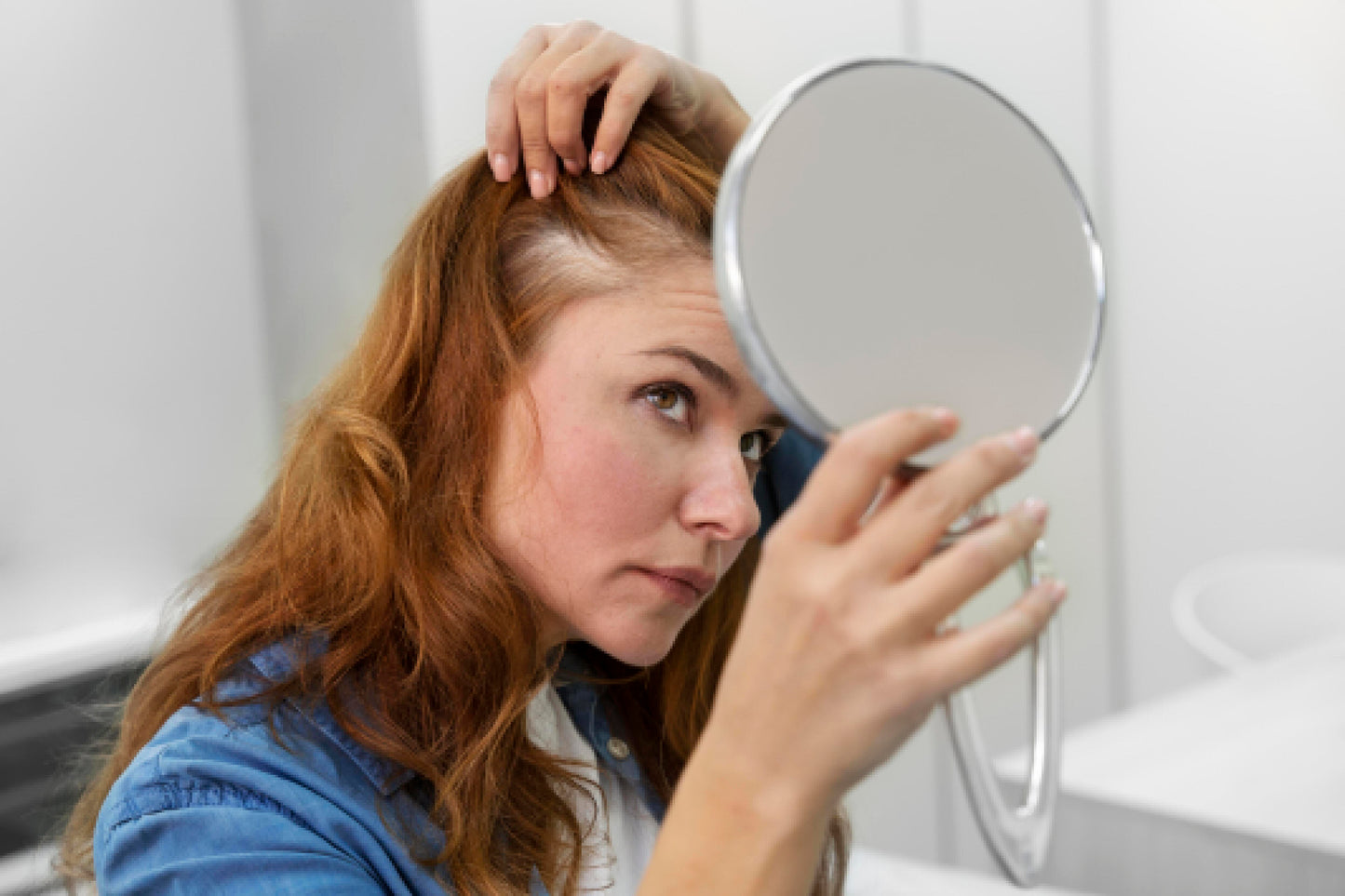


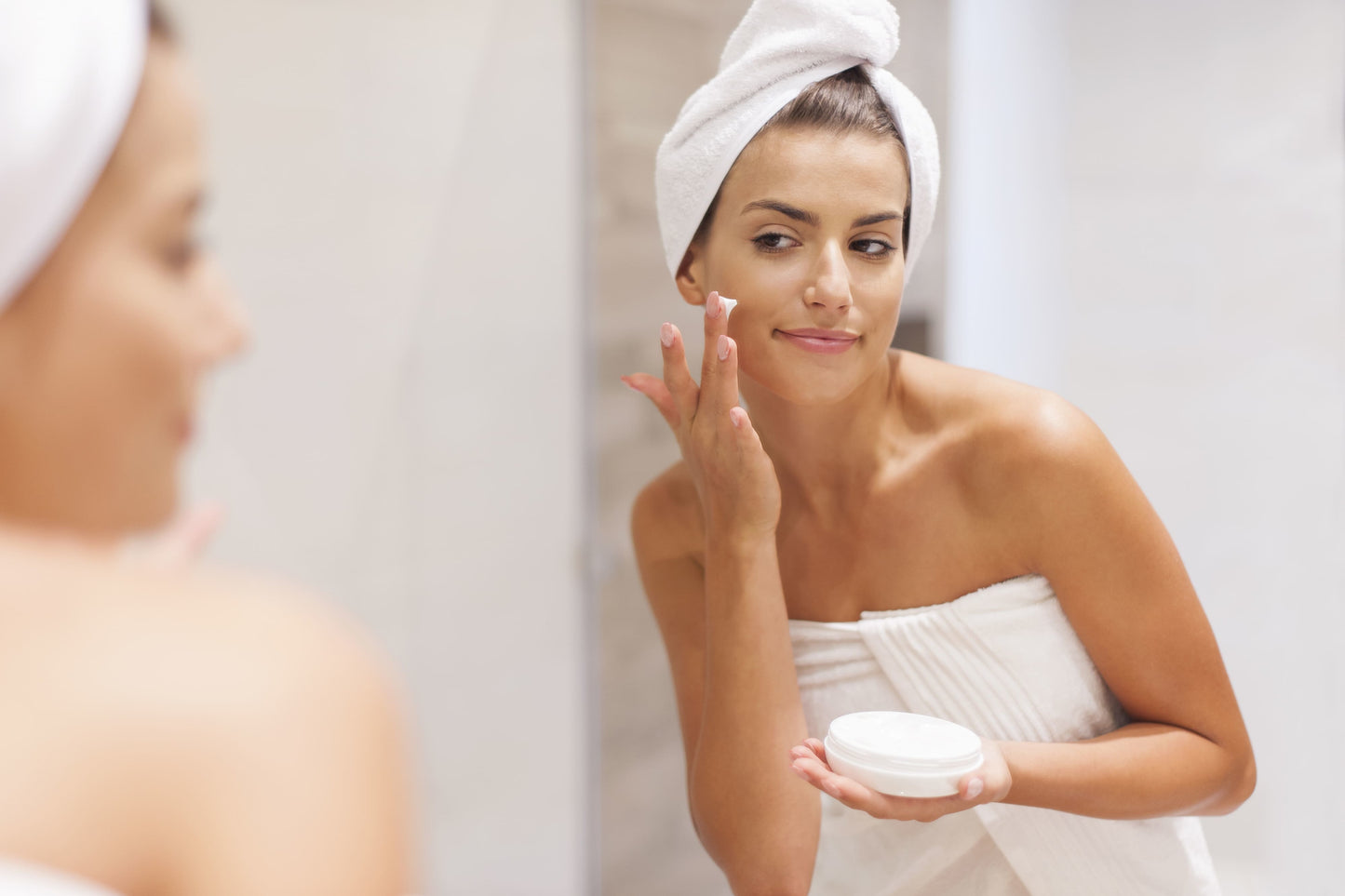
Comments
Really enjoyed reading this dermatologist-recommended guide to pigmentation creams! The breakdown of ingredients, pros and cons, and expert advice makes it easy to find an effective and safe option. Thanks for sharing! Depigmenting Cream